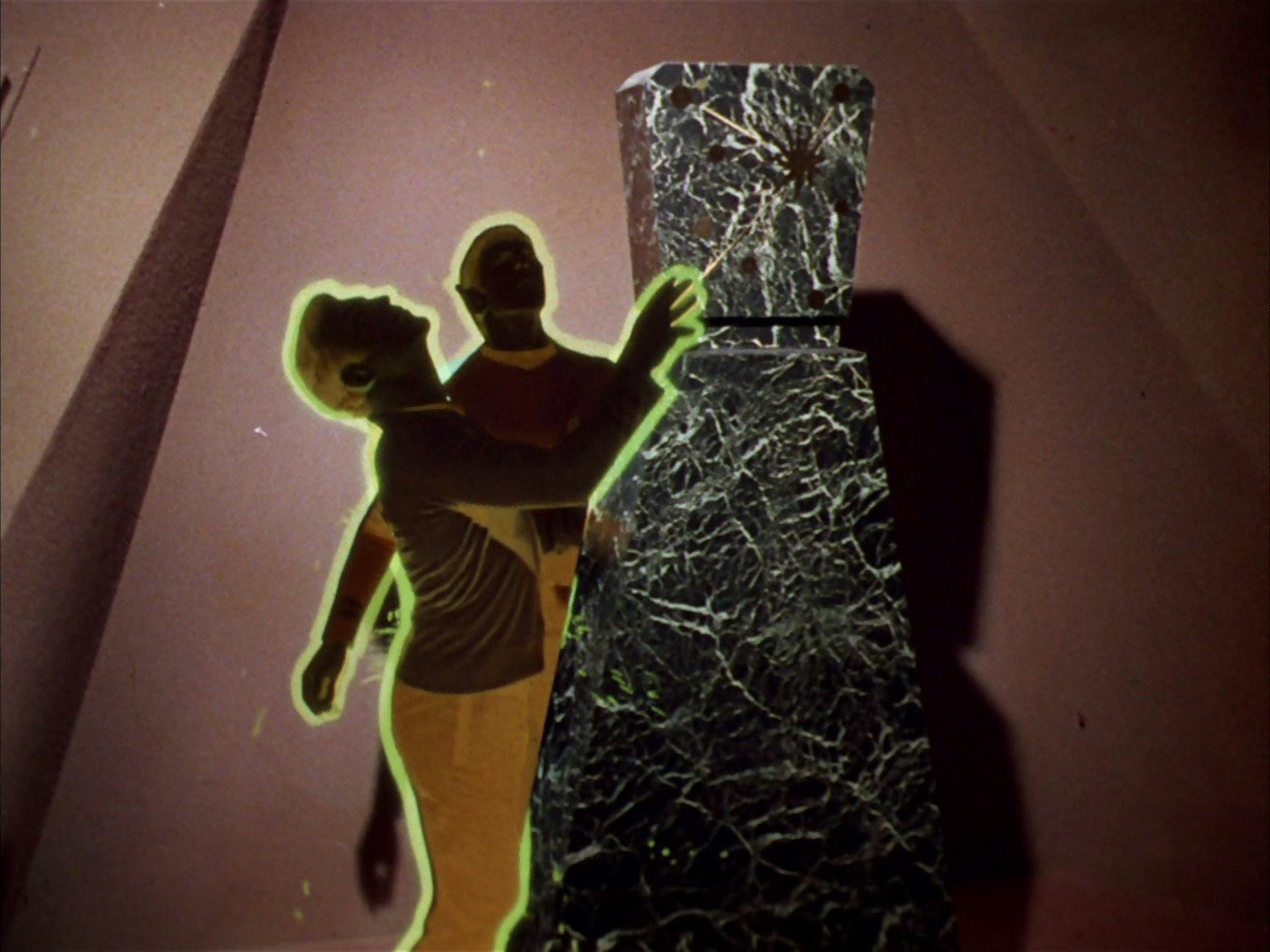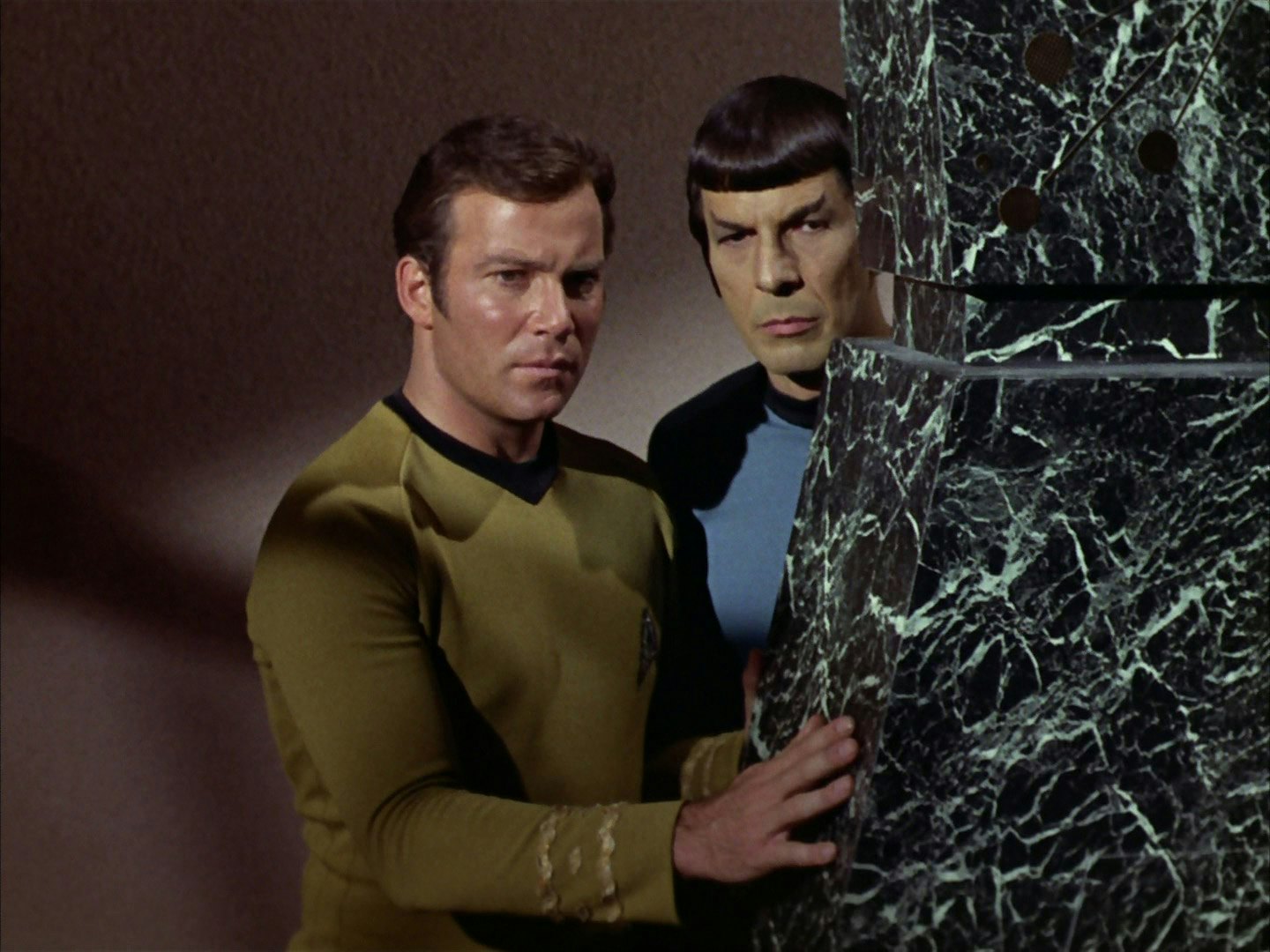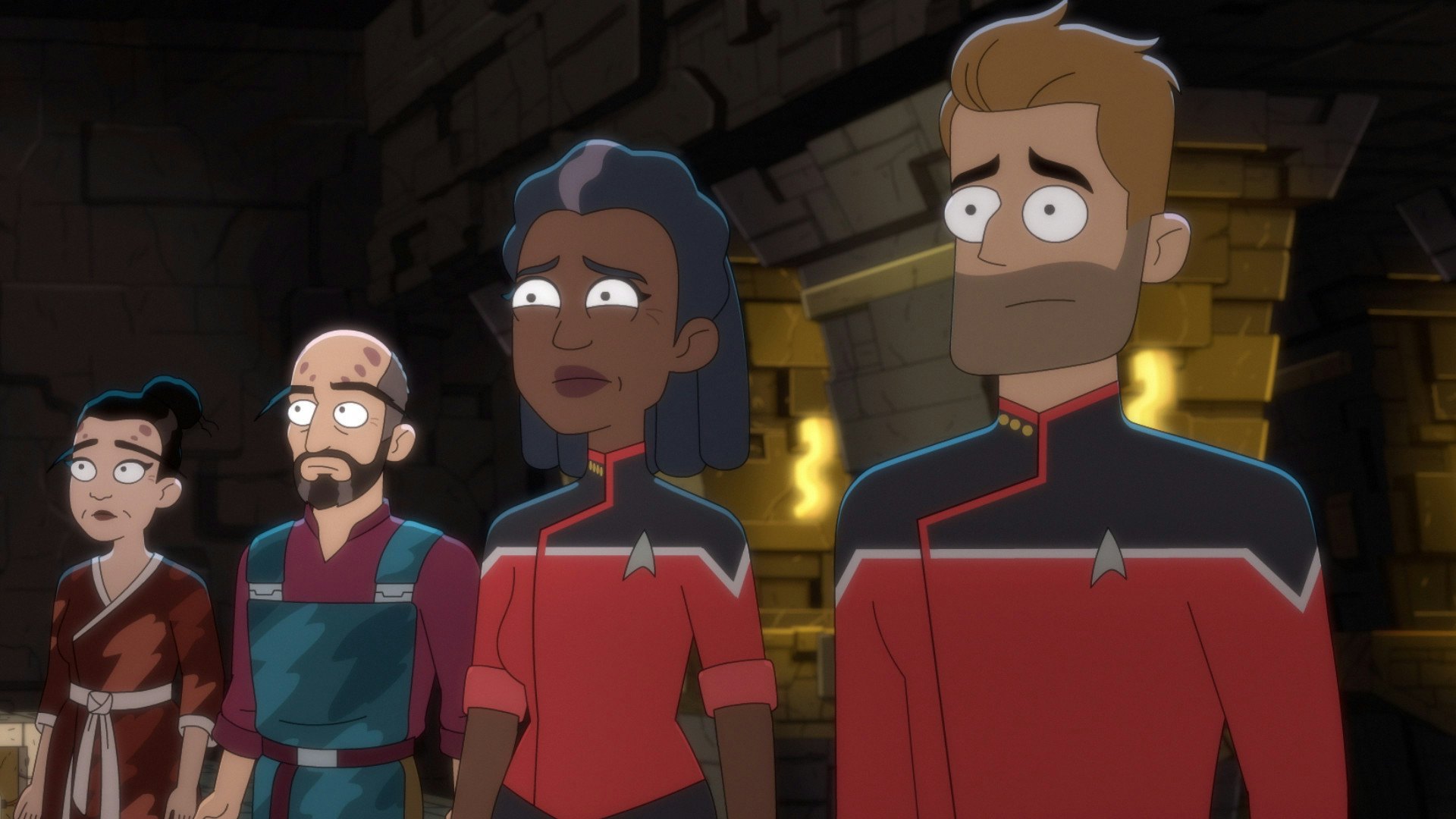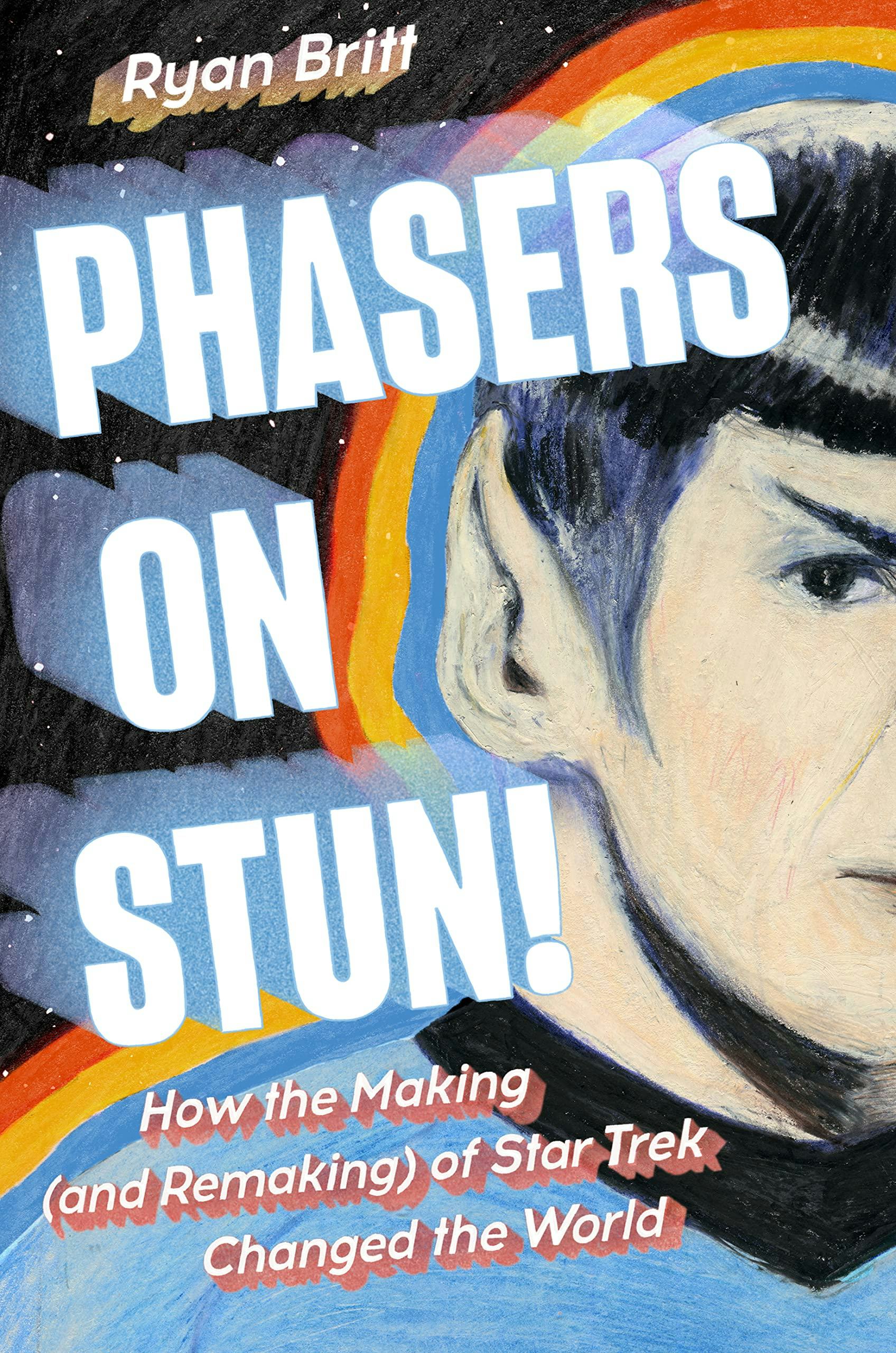
What happens when you let an AI run an entire planet? In Star Trek: The Original Series, Captain James T. Kirk practically made a second career out of unmasking world-controlling computers as false gods. From “Return of the Archons,” to “The Apple,” and perhaps, most memorably, “For the World is Hollow and I Have Touched the Sky,” many of the best episodes of TOS found Kirk and the gang forcing society to face the fact that worshipping a world-controlling AI as a god and letting it run your entire society was decidedly bad. Heck, even the premise of the laughably absurd episode “Spock’s Brain,” involved a culture losing its planet-running AI, and needing a replacement for said artificial brain in a hurry.
Now, with the Lower Decks Season 4 episode, “In the Cradle of Vexilon,” there’s a new spin on the ‘ole AI-runs-your-entire-planet trope. At the beginning of the episode, the USS Cerritos is visiting a Federation planet happily run by a world computer called Vexilon. The problem here isn’t that Captain Freeman is worried that it's somehow unethical to do this. Instead, the basic plot of the episode is slightly more realistic than TOS, despite the fact that the entire thing is played for laughs.

In “For the World is Hollow and I Have Touched the Sky,” people live inside of a hollowed-out asteroid called Yonada. Most people who live here have no idea that their entire world is actually inside of an asteroid, hence the name of the episode — one dweller of Yonada makes it up to the surface and utters the title of the episode. Everything on Yonada is run by a world computer called “The Oracle,” which requires everyone to be implanted with something called “the instrument of obedience,” which is basically a chip in your brain that zaps you when the Oracle thinks you’re acting up.
This is the classic sci-fi trope: When the AI takes over all aspects of life, eventually, it starts restricting freedoms and creating ignorance in the populace. At the start of “In the Cradle of Vexilon,” Captain Freeman says: “He’s not trying to subjugate anyone is he? I thought he was a friendly computer.” In a roundabout way, what Lower Decks is doing is presenting a status quo less like The Matrix and more like the ending of the Asimov short story, “The Evitable Conflict.” That story, which closes out the collection I, Robot, basically depicts a future in which the Machines have taken over society, but done so out of benevolence. In every single way, “The Evitable Conflict,” is the anti-AI uprising story, because it doesn't present this outcome as bad, hence the word “evitable” rather than “inevitable.”

So, with “In the Cradle of Vexilon,” Lower Decks takes a kind of Asimov approach to a TOS trope, but with a new spin. Instead of Vexilon turning evil, the problem is simply that the technology itself is glitchy. The problem with Vexilon isn’t that it’s trying to take away freedoms, it’s simply that because it's an ancient computer, nobody actually knows how to fix it. This results in everything going wrong, and the planet nearly destroying itself. There’s not really an ethical dilemma here. The problem with this technology is well, simply a technological one. Obviously, Captain Freeman and the crew save the day, but it’s quietly profound that Starfleet’s entire job in this episode is basically acting as tech support for an AI overlord.
Since it began in 2020, Lower Decks has been a Trek series designed to show the less-glamorous jobs in the Final Frontier; the Cerritos is a kind of support ship, whose missions are often stuff exactly like this; mopping up messes rather than boldly going and making big speeches. It’s tough to say yet if “In the Cradle of Vexilon” will go down as classic, as fun, or as quirky as “For the World is Hollow and I Have Touched the Sky.” But for now, of the two, this new Lower Decks episode is probably a better work of science fiction, simply because you can totally imagine this happening.
Star Trek: Lower Decks steams on Paramount+.
Phasers on Stun!: How the Making — and Remaking — of Star Trek Changed the World








